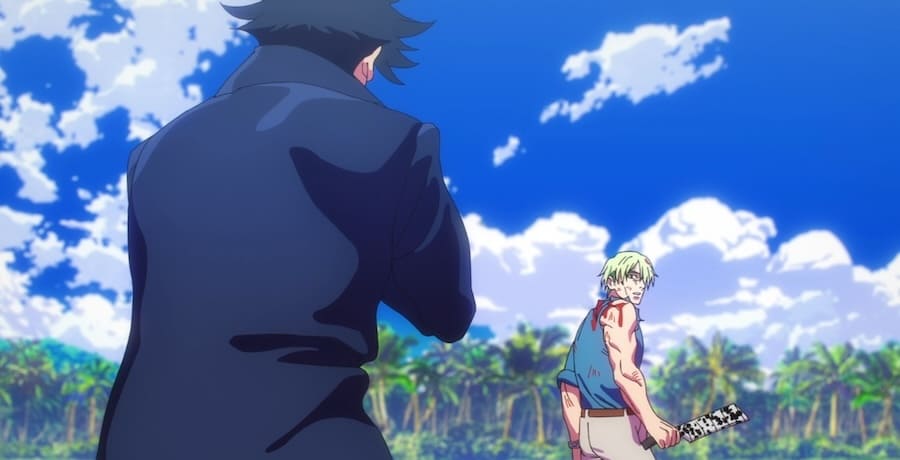In this article, I will explain Japanese grammar and vocabulary based on Megumi Fushiguro’s line “命はかけても捨てる気はありません”.
Let’s have fun learning Japanese through Jujutsu Kaisen!
The Basic Information of The Line
The basic meaning
in Japanese: “命はかけても捨てる気はありません”
in Hiragana: “いのちはかけてもすてるきはありません”
in Romaji: “Inochi ha kakete mo suteru ki ha arimasen”
Meaning: “I will stake my life but I don’t intend to sacrifice it.”
The situation in which the line was spoken

This line is from “Jujutsu Kaisen” during the Shibuya jihen, spoken by Megumi Fushiguro. In a battle between several sorcerers and a special grade cursed spirit, the enemy unleashed an incredibly powerful technique.
To counter this technique, Megumi Fushiguro explained a strategy to Kento Nanami. After hearing the strategy, Kento Nanami asked like, “Are you intending to die?”
To this, Megumi Fushiguro responded with the following line: “I will stake my life but I don’t intend to sacrifice it.”
Grammatical Structure
命 (いのち)
This means “life.” It is the subject of the sentence and is marked by the topic particle は (wa).
かけても
This is a conjunctive form of the verb かける (kakeru), which can mean “to risk” or “to wager” in this context. The ても (temo) form is a conditional form that can be translated as “even if” or “though.” So かけても translates to “even if (I) risk.”
捨てる (suteru)
This means “to throw away” or “to discard.” Here, it is in its base form.
気 (き)
This is a noun that means “feeling” or “intention.”
は
This is the topic particle again, marking “気” as the topic of the second part of the sentence.
ありません
This is the negative form of あります (arimasu), which means “to have” or “to be (in a certain state).” Here, it is used to mean “there is not.”









Related articles